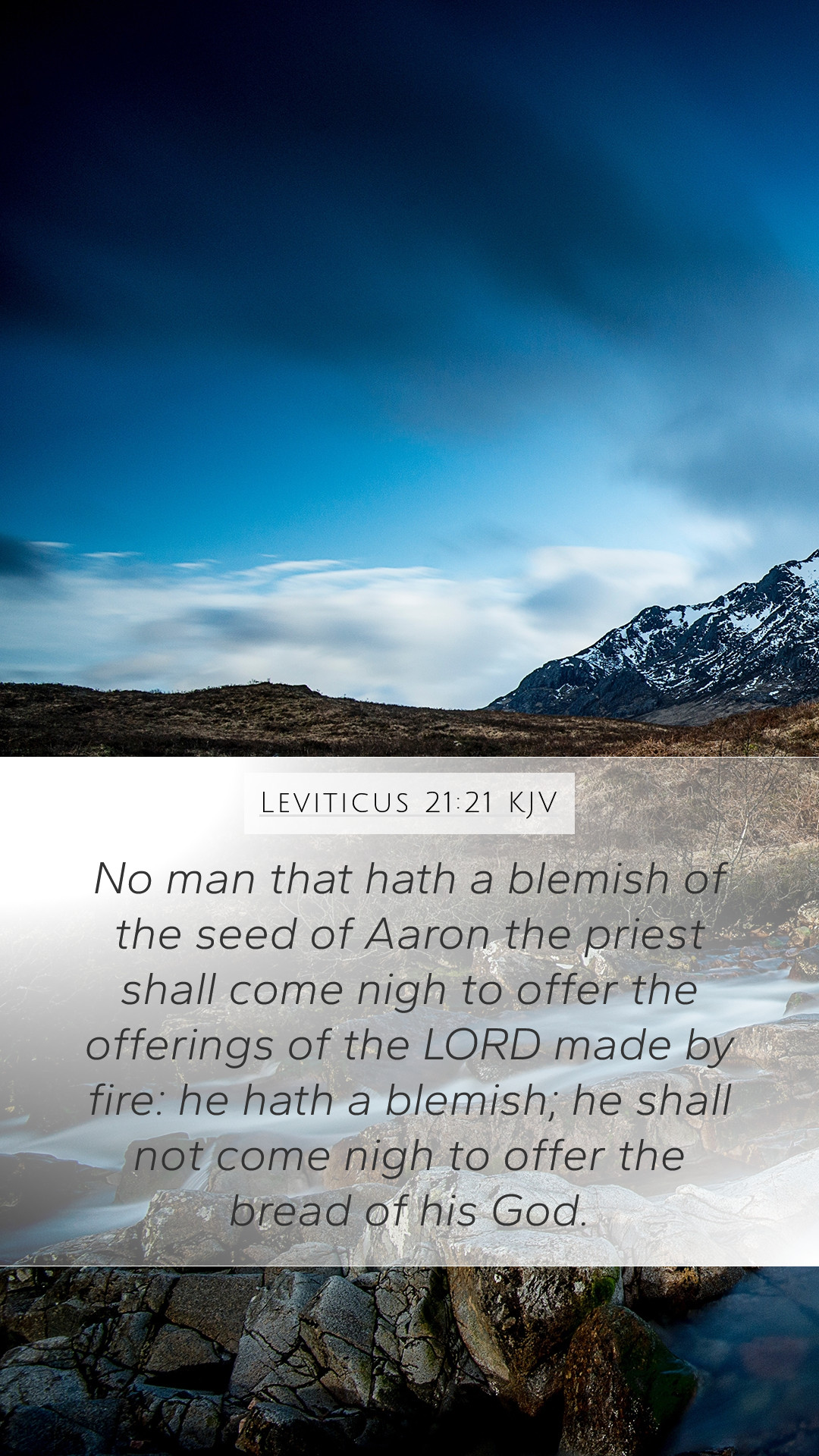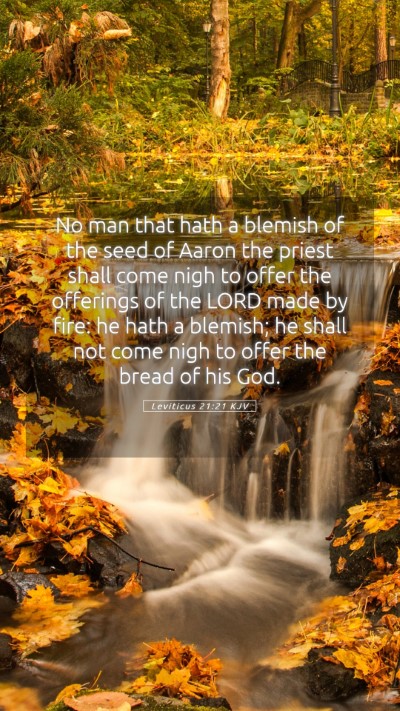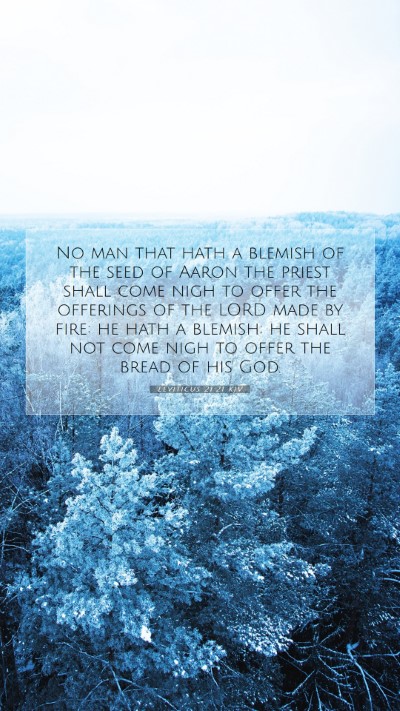Understanding Leviticus 21:21
Leviticus 21:21 states: "No man that hath a blemish of the seed of Aaron the priest shall come nigh to offer the offerings of the Lord made by fire: he hath a blemish; he shall not come nigh to offer the bread of his God." This verse serves to emphasize the importance of purity and holiness in serving God, particularly for priests who stand in the place of God among the people.
Bible Verse Meaning
In this context, Leviticus 21:21 highlights several significant themes regarding the priestly role and the standards set for those who serve in sacred capacities.
- Qualifications for Priests: Priests, as descendants of Aaron, had to adhere to strict qualifications. They were to be physically without blemish, symbolizing spiritual purity and divine perfection required in approaching God.
- Symbolism of Blemishes: The 'blemishes' mentioned could be physical disabilities or deformities but symbolize broader spiritual unworthiness. This reflects the idea that those who come before God must embody holiness and be free from the defilement of sin.
- Offering of Fire: The "offerings of the Lord made by fire" signify the sacred rituals that were part of worship in Israel. Only those deemed fit could partake in such offerings, underscoring the significance of the priest's role in mediating between God and the people.
Bible Verse Interpretations
The interpretation of this verse aligns with thoughts from notable commentators:
- Matthew Henry: He notes that this command underlines God's desire for unblemished service, reflecting His holiness. Henry emphasizes that these physical qualifications serve as a type of spiritual integrity required for true worship.
- Albert Barnes: Barnes highlights the ceremonial nature of these regulations and their role in restraining the priestly service from being compromised. He explains that these conditions underline God's order in religious matters and the seriousness with which He regards the priest's function.
- Adam Clarke: Clarke comments on the practical implications of this regulation, stating that such personal perfection in the priest symbolically points to the need for spiritual integrity in all who serve God. He asserts that while the physical qualifications were specific to the priesthood, they also reflect God's expectations for moral purity from all His people.
Application of Leviticus 21:21
The principles extracted from this verse can be applied in various ways:
- Personal Holiness: As believers today, the call for holiness remains. While the physical qualifications for priests have changed with the New Covenant, the underlying principle still emphasizes living a life that glorifies God.
- Spiritual Leadership: Those in leadership roles within the Church are encouraged to maintain high moral and ethical standards, reflecting the call in Leviticus.
- Corporate Worship: This verse invites congregations to assess the spiritual state of their leaders and seek leaders who strive for holiness and integrity, thus preserving the sanctity of worship.
Cross References
- Exodus 28:1-3: Discusses the consecration of Aaron and the design of holy garments.
- Leviticus 21:16-17: Outlines the conditions for priests regarding any physical defect or blemish.
- 1 Peter 2:9: Describes the believers as a chosen generation, encouraging holiness among God's people.
Conclusion
In conclusion, Leviticus 21:21 offers rich insights into the expectations placed upon those serving God, both then and now. Through careful scrutiny and application of this verse, one can better understand the significance of holiness and integrity in the context of worship and leadership.


